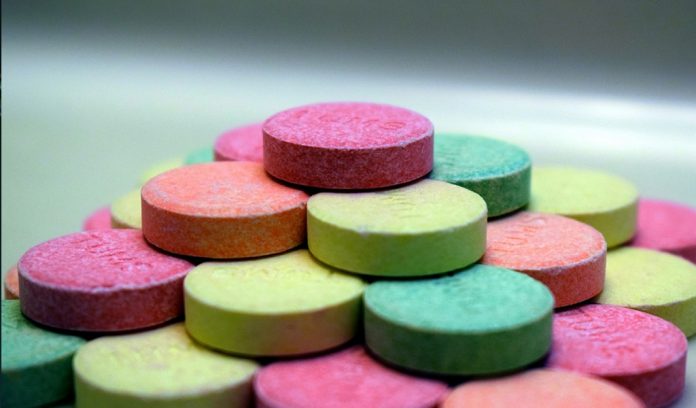
If you’re experiencing heartburn and taking PPIs (Proton Pump Inhibitors, the most commonly prescribed medicine for heartburn), experts say you’ve got a three to four times higher risk of developing stomach cancer.
Not a very comforting announcement, especially knowing that 60 million people in the U.S. are affected by heartburn pain every month which is described as “sharp and burning” and sometimes located behind the breastbone or around the throat or neck.
The common misconception about heartburn is that it is triggered by “high acid production” due to moments of stress, or when a highly known bacteria called Helicobacter pylori (H. pylori) is causing infections to your stomach and intestines (aside from residing there too!). So to address the heartburn pain issue, PPIs drugs are conventionally and conveniently prescribed by doctors.
While PPIs do decrease the amount of stomach acid produced in your gut, it is not excess acid that causes heartburn. Physically, the opposite is usually the case. Low acid production may be the cause of too much bacteria growth in your stomach. Too much bacteria in the gut changes your digestion of carbohydrates, producing more gas. When there is constant gas production in your stomach, this creates pressure on your LES (lower esophageal sphincter), thereby weakening it (it’s that round muscle in between your gut and the lower portion of your esophagus).
When the sphincter is weakened, it releases acid into the esophagus and creates the heartburn pain that you experience. It has been discovered for some time that long-term use of PPIs may actually increase the risk of developing heartburn.
Earlier links between PPIs and Gastric Cancer
An earlier study conducted in 1985 made a connection between PPIs and stomach cancer. It showed a link between gastric cancers and a PPI drug called omeprazole (Prilosec). However, this was tested on lab rats so there was a concern then if this observation should apply to humans.
Two big pharma companies, Glaxo and SmithKline & French at the time, ceased their drug research & development on PPIs when their tests also indicated a risk of gastric cancer involving animal tests. Eventually, researchers with further studies concluded that long-term medication with PPIs produced a state of hypergastrinemia, an excess amount of gastrin in the blood and a risk factor for gastric cancer. In fact, they found hyperplasia (enlargement of an organ or tissue) in 30% of regular users of PPIs.
Stomach acid is needed for digestion. It means that if you reduce the amount of acid in your stomach using PPIs, you definitely increase your risk of not just heartburn but also gastroesophageal reflux (GERD) and chronic indigestion.
The London-Hong Kong Study
Recently, scientists from The University of London and The University of Hong Kong discovered that you double the risk of developing stomach cancers when a person medicates with PPIs. The scientists concluded this when they compared those who used PPIs to reduce acid reflux against those patients who used triple therapy – 2 antibiotics and a PPI to reduce acid secretion – to kill the H. pylori bacteria, along with an H2 receptor such as Tagamet or Zantac.
They found that those who took PPIs every day had almost four times more the risk of stomach cancer than those who took the drug once a week.
Popular PPI drugs
Some of the more common PPI drugs are:
- aspirin and omeprazole (Yosprala)
- esomeprazole (Nexium, Nexium IV, Nexium 24 HR)
- esomeprazole magnesium/naproxen (Vimovo)
- rabeprazole (Aciphex, Aciphex Sprinkle)
- omeprazole (Prilosec, Prilosec OTC)
- dexlansoprazole (Dexilent, Dexilent Solutab)
- lansoprazole (Prevacid, Prevacid IV, Prevacid 24-Hour)
- pantoprazole (Protonix)
- omeprazole/sodium bicarbonate (Zegerid, Zegerid OTC)
Alternative Treatments for Heartburn
You must start weaning yourself from your PPI drugs. Although it is true that they reduce heartburn, they do have more dangerous side effects on your health such as potential cancer.
I strongly recommend only “all-natural, plant-based remedies”. Strengthen your gut microorganisms (the good ones!) by eating lots of green, leafy vegetables and fruits. Reduce your complex carbohydrates intake of white rice, pasta, bread, etc.
Add some more acid to your gut by mixing apple cider vinegar to a cup of fresh, lukewarm water before every meal and drink it to stimulate digestion and reduce post-meal heartburn. Likewise, unfiltered coconut oil offers antibacterial benefits and helps manage an overgrowth of bacteria in your gut. This healthy oil also helps to soothe your esophagus. Start with a teaspoon each day, working to about 3 tablespoons per day. You can mix it with your coffee or tea.
Image by Brett_Hondow / CC0 1.0








